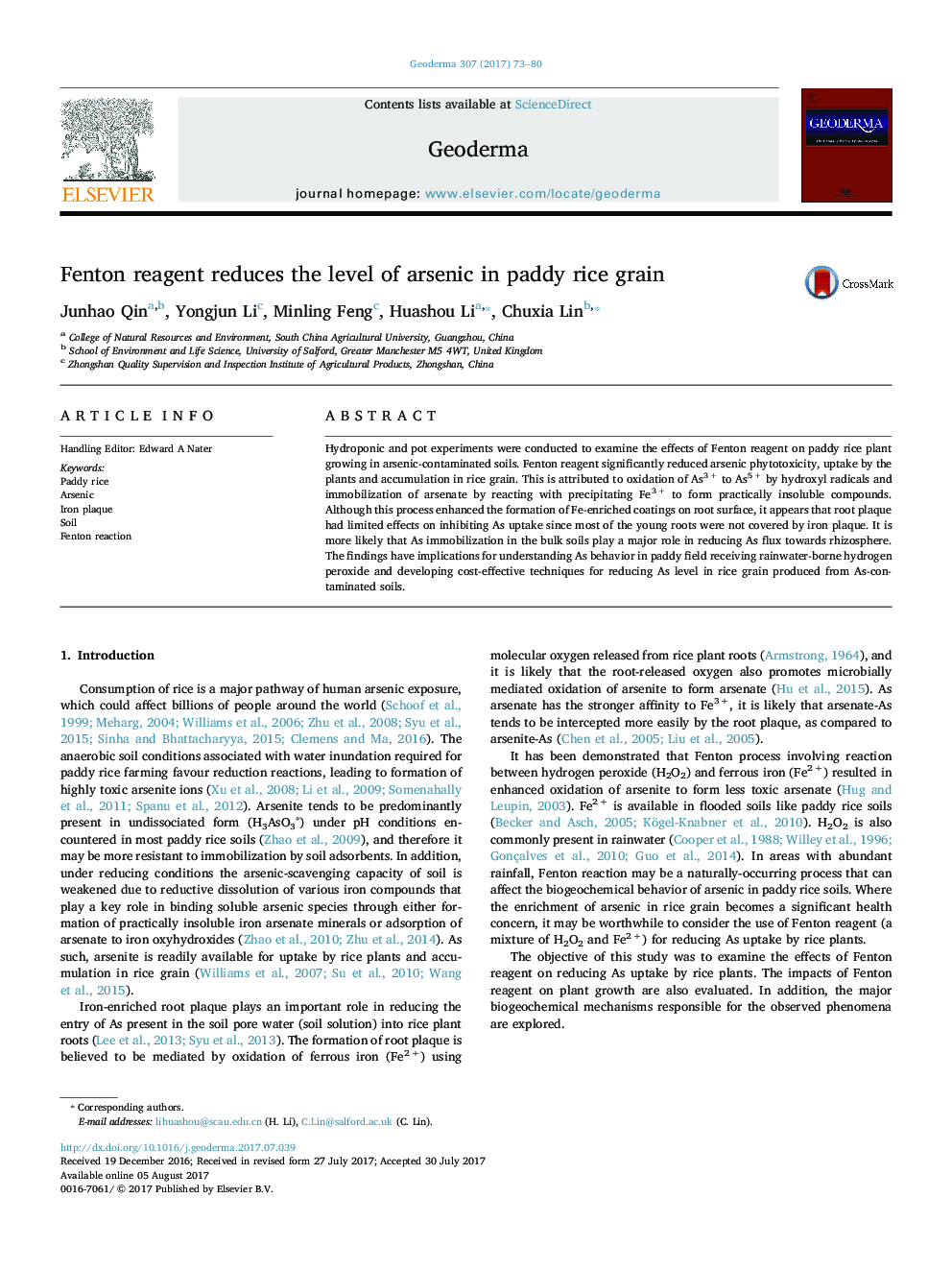| Article ID | Journal | Published Year | Pages | File Type |
|---|---|---|---|---|
| 5770231 | Geoderma | 2017 | 8 Pages |
Hydroponic and pot experiments were conducted to examine the effects of Fenton reagent on paddy rice plant growing in arsenic-contaminated soils. Fenton reagent significantly reduced arsenic phytotoxicity, uptake by the plants and accumulation in rice grain. This is attributed to oxidation of As3Â + to As5Â + by hydroxyl radicals and immobilization of arsenate by reacting with precipitating Fe3Â + to form practically insoluble compounds. Although this process enhanced the formation of Fe-enriched coatings on root surface, it appears that root plaque had limited effects on inhibiting As uptake since most of the young roots were not covered by iron plaque. It is more likely that As immobilization in the bulk soils play a major role in reducing As flux towards rhizosphere. The findings have implications for understanding As behavior in paddy field receiving rainwater-borne hydrogen peroxide and developing cost-effective techniques for reducing As level in rice grain produced from As-contaminated soils.
